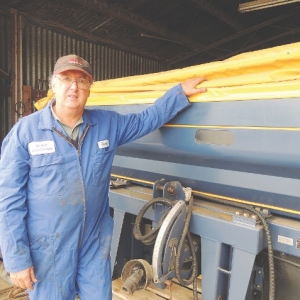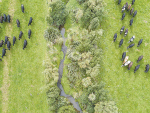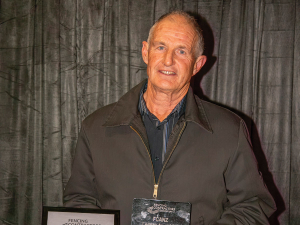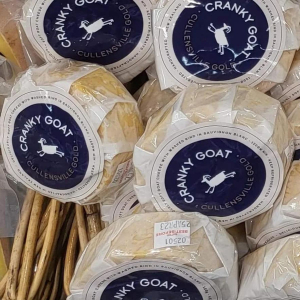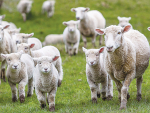SUGGESTIONS THAT GPS-guided fertiliser spreading will deliver “major savings” miss a swathe of more fundamental problems with nutrient application in New Zealand, says a farmer with much expertise in the area.
Professor Ian Yule’s comments in Rural News (Feb 19) prompted South Canterbury grower Jeremy Talbot to fire off a list of more urgent matters to attend to. First is fertiliser spreadability, for which there’s no standard in New Zealand.
“I tested samples of superphosphate from the two big players over a year and in my machine, which is one of the best available, the spreading capability varied from 15m to 44m for product of supposedly the same class,” Talbot told Rural News.
In the past two years any farmer who has used Ammo 31 will have seen serious stripping in paddocks, he adds.
“Even urea, from both companies, has had issues. Some samples have had up to 30% fines in them.”
While he acknowledges Yule’s assertion that capability of some spreaders is part of the problem, such product variability makes a mockery of calls for more sophisticated machinery testing and regulations.
The variability isn’t just between batches: it’s also between truckloads as more fines come from the centre of heaps in stores.
“We haven’t got a hope in hell of being able to conform to all the looming environmental regulatory requirements if we don’t know how products will spread and/or how the rate will vary.”
While the problems relate to both main suppliers’ products, for years he’s tried to get his co-operative, Ravensdown, to address his quality concerns, going so far as to research the issues here and overseas, and provide solutions “on a plate.”
“We even had 22t of New Zealand fert shipped to Denmark for official spreadability testing. They found our superphosphate was so weak in the granule and caused so much dust, it clogged the test centre’s air filters in one run!”
He also helped develop a spiral drop system into stores so fines were more evenly spread, but Ravensdown abandoned its use six or seven years ago.
Supplying the co-op with European spreadability test kits consisting of a sieve box and granule strength tester hasn’t helped either.
“ The European standard is for granules to withstand a 6-8kg crushing force. Tests on Ravensdown super from Hornby and Ravensbourne found one to have a crush strength of 3kg, the other under 1kg. They’d said they were identical.”
Talbot believes both co-operatives need to refocus on their core function of providing New Zealand farmers’ nutrient needs. “Not feed, drenches, agchems or Australia.”





